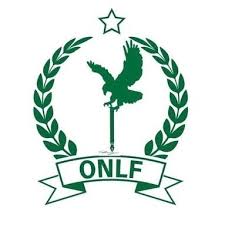THE CASE OF WESTREN SOMALILAND (OGADEN): AN INTERNATIONAL LEGAL PERSPECTIVE
Legal and historical document written by Professor Reisman( mireisman ) who teaches at Yale Law School. The present essay draws on work he and Professor Myres S. McDougal (Yale Law School) have been engaged in jointly.
Excerpt – In 1884, the British attempted to delimit the inland boundaries of the Somali protectorate with Italy, which purported to have a protectorate over Ethiopia. The agreement of May 5, 1894 extended the protectorate considerably inland. But Menelik II, the Ethiopian Emperor, refused to acknowledge Italy’s asserted protectorate. The subsequent Italian defeat at the hands of Menelik and Britain’s difficulties with the Mahdist uprising in the Sudan made London anxious to settle with Ethiopia on terms that would win Menelik’s good will.16 James Renncl Rodd, later Lord Rennel of Rod, was sent to Addis Ababa in 1897 and concluded a treaty and an exchange of notes delimiting the border.17 The note of June 4, 1897, pur-ported to establish the border. In contrast to the agreement with Italyin 1894, Great Britainin the 1897 agreement ceded about 25,000 square miles. Other provisions of the Treaty of June 4, 1897 made plain that the United Kingdomhad struck a “package” deal, purporting to trade the patrimony of the Somali tribes in exchange for commercial privileges for British traders in Ethiopiaand commitments by Menelik to remain neutral with regard to the Mahdist war. As against Britain’s breach of the Somali protectorate, HORN OF AFRICAJULY-SE PTEMBER
there was no countervailing Ethiopian claim of any international legal merit, for as of 1897 Ethiopian claims could not be supported “by any firm Ethiopian occupation on Somali soil beyond Jigjiga.18 The Somalis themselves were unaware of the 1897 Agreement. Lewis reports:
. . . it was not until 1934, when an Anglo-Ethiopian boundary commission attempted to demarcate the boundary, that British-protected Somali became aware of what had happened, and expressed their sense of outrage in disturbances which cost one of the commissioners his life. This long period of ignorance, far from indicating acquiescence, was facilitated by the many years which elapsed beforeEthiopiaestablished any semblance of effective administrative control in the Haud and Ogaden.19
Ethiopia’s claims for Somali territory adjacent to the former British Protectorate are ultimately based, in inter-national law, upon the 1897 Treaty and the Exchange of Letters which followed it. Insofar as that treaty is null and void,Ethiopia’s claims have no legal basis.
As a matter of law and fact, the 1897 Treaty was void because it presumed an authority which the Somalis had never accordedGreat Britain. The Somalis gave no authority to the British to transfer Somali territory to an-other state. Ironically, the British had committed them-selves to protect the Somali territory and this was the manifest reason for the Protectorate. In attempting to transfer the land toEthiopia, the British were acting with-out competence, exceeding their jurisdiction and concluding an agreement without the participation of the central party. Moreover, the Treaty violated the fundamental trust which was expressed in the Protectorate Agreements on which the British rested their authority with regard to theSomaliTerritory. Even if the Treaty of 1897 had originally been valid, it would have been invalidated byEthiopia’s failure to perform key obligations. In the :’Namibiaopinion, the International Court of justice held that
… a party which disowns or does not fulfil its own obligations cannot be recognized as retaining the rights which it claims to derive from the relationship.20
The 1954 Anglo-Ethiopian Agreement, the purported successor of the 1897 agreement, imposed the fundamental obligations onEthiopia, some deriving from the core of the original 1897 agreement. In particular, the 1954 Anglo-Ethiopian Agreement reaffirmed the boundary and grazing rights of the 1897 treaty and so provided for the continued functioning of tribal authorities and police in the areas to be given to Ethiopia “as set up and recognized by the government of the Somaliland Protectorate,” but “without prejudice to the jurisdiction of the Imperial Ethiopian Government.”Ethiopiadid not comply with these provisions to the satisfaction of its treaty partner, and the British Government formally stated:
Many of the actions of the Ethiopian authorities……proved to be neither in accord with the letter nor the spirit of the Agreement…………..21
The Ethiopian violations cut the fundamental provisions of the Treaty and may thus be deemed to be contrary to basic purpose of the Agreement, thus authorizing the termination of the agreement bySomalia.
Reisman Edited Final version[1]
ONA.




Comments are closed
Sorry, but you cannot leave a comment for this post.